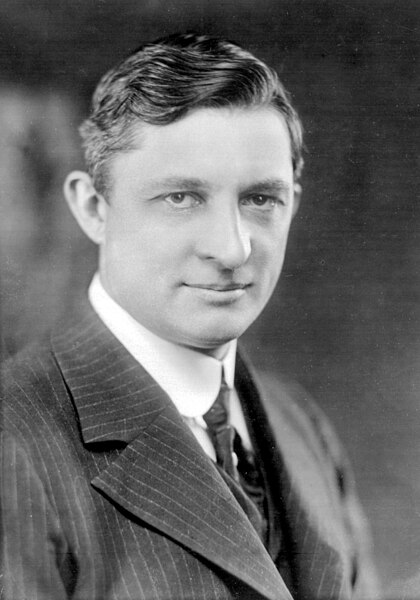 [div class=attrib]From the New York Times:[end-div]
[div class=attrib]From the New York Times:[end-div]
THE blackouts that left hundreds of millions of Indians sweltering in the dark last month underscored the status of air-conditioning as one of the world’s most vexing environmental quandaries.
Fact 1: Nearly all of the world’s booming cities are in the tropics and will be home to an estimated one billion new consumers by 2025. As temperatures rise, they — and we — will use more air-conditioning.
Fact 2: Air-conditioners draw copious electricity, and deliver a double whammy in terms of climate change, since both the electricity they use and the coolants they contain result in planet-warming emissions.
Fact 3: Scientific studies increasingly show that health and productivity rise significantly if indoor temperature is cooled in hot weather. So cooling is not just about comfort.
Sum up these facts and it’s hard to escape: Today’s humans probably need air-conditioning if they want to thrive and prosper. Yet if all those new city dwellers use air-conditioning the way Americans do, life could be one stuttering series of massive blackouts, accompanied by disastrous planet-warming emissions.
We can’t live with air-conditioning, but we can’t live without it.
“It is true that air-conditioning made the economy happen for Singapore and is doing so for other emerging economies,” said Pawel Wargocki, an expert on indoor air quality at the International Center for Indoor Environment and Energy at the Technical University of Denmark. “On the other hand, it poses a huge threat to global climate and energy use. The current pace is very dangerous.”
Projections of air-conditioning use are daunting. In 2007, only 11 percent of households in Brazil and 2 percent in India had air-conditioning, compared with 87 percent in the United States, which has a more temperate climate, said Michael Sivak, a research professor in energy at the University of Michigan. “There is huge latent demand,” Mr. Sivak said. “Current energy demand does not yet reflect what will happen when these countries have more money and more people can afford air-conditioning.” He has estimated that, based on its climate and the size of the population, the cooling needs of Mumbai alone could be about a quarter of those of the entire United States, which he calls “one scary statistic.”
It is easy to decry the problem but far harder to know what to do, especially in a warming world where people in the United States are using our existing air-conditioners more often. The number of cooling degree days — a measure of how often cooling is needed — was 17 percent above normal in the United States in 2010, according to the Environmental Protection Agency, leading to “an increase in electricity demand.” This July was the hottest ever in the United States.
Likewise, the blackouts in India were almost certainly related to the rising use of air-conditioning and cooling, experts say, even if the immediate culprit was a grid that did not properly balance supply and demand.
The late arrival of this year’s monsoons, which normally put an end to India’s hottest season, may have devastated the incomes of farmers who needed the rain. But it “put smiles on the faces of those who sell white goods — like air-conditioners and refrigerators — because it meant lots more sales,” said Rajendra Shende, chairman of the Terre Policy Center in Pune, India.
“Cooling is the craze in India — everyone loves cool temperatures and getting to cool temperatures as quickly as possible,” Mr. Shende said. He said that cooling has become such a cultural priority that rather than advertise a car’s acceleration, salesmen in India now emphasize how fast its air-conditioner can cool.
Scientists are scrambling to invent more efficient air-conditioners and better coolant gases to minimize electricity use and emissions. But so far the improvements have been dwarfed by humanity’s rising demands.
And recent efforts to curb the use of air-conditioning, by fiat or persuasion, have produced sobering lessons.
[div class=attrib]Read the entire article after the jump.[end-div]
[div class=attrib]Image courtesy of Parkland Air Conditioning.[end-div]

 The United States is gripped by political deadlock. The Do-Nothing Congress consistently gets lower approval ratings than our banks, Paris Hilton, lawyers and BP during the catastrophe in the Gulf of Mexico. This stasis is driven by seemingly intractable ideological beliefs and a no-compromise attitude from both the left and right sides of the aisle.
The United States is gripped by political deadlock. The Do-Nothing Congress consistently gets lower approval ratings than our banks, Paris Hilton, lawyers and BP during the catastrophe in the Gulf of Mexico. This stasis is driven by seemingly intractable ideological beliefs and a no-compromise attitude from both the left and right sides of the aisle. It’s #$% hot in the southern plains of the United States, with high temperatures constantly above 100 degrees F, and lows never dipping below 80. For that matter, it’s hotter than average this year in most parts of the country. So, a timely article over at Slate gives a great overview of the history of the air conditioning system, courtesy of inventor Willis Carrier.
It’s #$% hot in the southern plains of the United States, with high temperatures constantly above 100 degrees F, and lows never dipping below 80. For that matter, it’s hotter than average this year in most parts of the country. So, a timely article over at Slate gives a great overview of the history of the air conditioning system, courtesy of inventor Willis Carrier.